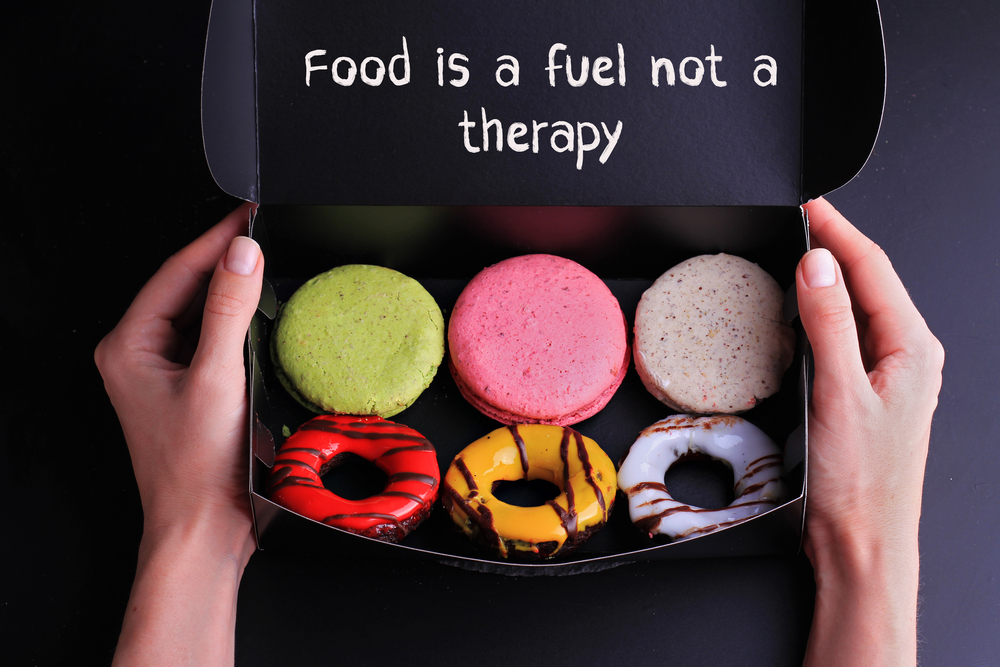Types of emotional eaters, do you fall into more than one category?
If you think all stress eating is the same, think again. Recent studies have found two distinct patterns. See which style describes you (or perhaps you fall into both categories, depending on the type of stress) and how you can change it.

Scientists have found that stress eaters can be divided into two groups, munchers and skippers. Munchers tend to eat more after a negative experience while skippers eat more after a positive event. Munchers also eat about one-third more calories on average.
Once you become aware of your habits, you can take control of them. Try these strategies for munchers, skippers, or anyone who struggles with emotional eating.
Strategies for Munchers
Give yourself a pep talk. Remembering all your blessings makes difficult times easier to bear. Thinking about your major accomplishments helps you to recall your strengths even when you’re cringing over a recent mistake.
Look on the bright side. We usually experience a number of failures on the road to success. Even when you fail to get the results you wanted, see what you can learn from the situation.
Laugh more. Some stressful situations may seem funny when you try to find the humor in them. Reminisce about the blind date who spent the entire dinner explaining their conspiracy theories. You’ll be too busy laughing to stop for potato chips.

Develop self-compassion. At the same time, validate your feelings. Acknowledge when you are upset or angry. Expressing emotions makes us less vulnerable to using food for comfort.
Strategies for Skippers
Put pleasures in perspective. It’s natural to get excited about a dream vacation or a fabulous new pair of sandals. Be sure to also cultivate a deeper sense of peace and contentment through healthy relationships and virtuous living so you can manage your emotions and thoughts.
Share your joy. The most effective way to use pleasures constructively is to share them with others. The gratification you’ll feel when you give part of your raise to charity will outshine any extra dessert.
Plan non-food celebrations. If you usually go out to dinner to celebrate good times, try planning more unusual festivities. Go away for a ski weekend on your next wedding anniversary.

Be extra careful during the holidays. The average weight gain of 1 to 2 pounds during the winter months adds up over a lifetime. Put your heart into Christmas carols and decorating rather than eggnog and chocolate cake.
Strategies for Any Kind of Emotional Eating
Practice relaxation techniques. Melt away stress with meditation or a warm bath. Pet your cat or listen to gentle music.


Exercise regularly. Exercise counters emotional eating in several ways. Physical activity burns off calories and temporarily suppresses your appetite. It also elevates your mood so it’s easier to resist cookies.
Talk things over. Call a friend instead of a pizza parlor when you feel especially happy or sad. Discussing your feelings provides longer-lasting relief than marinara sauce and extra cheese.
Keep a food journal. Spot your individual triggers by writing down what you eat and how you feel on the spot. Your sensitive areas may be related to work or your family.
Discover smart substitutions. Minimize the impact of emotional eating by finding satisfaction in fewer calories. Replace corn chips with carrot sticks dipped in salsa. Indulge in a homemade mango popsicle instead of whole-fat ice cream. Diabetics, should always have a few options available. Several of these are great to have in a purse or in your car so that you aren’t tempted to go through the drive-thru or stop at the convenience store for less effective options: a handful of almonds, roasted chickpeas, trail mix. Here is a link to more suggestions for healtier snacking for diabetics from healthline.

Consider counseling. Professional therapists have helped many people to gain control over emotional eating. Ask your physician for a referral.
Whether you’re a muncher or a skipper, you can choose to develop new and healthier habits. Eat right and manage stress so you can look and feel your best.
If you are trying to make better life choices and are diabetic, pre-diabetic, or wanting to lose weight with the help of a team of physicians, nutritionists, and dieticians. We can help! Get in touch with our clinic. We accept new patients and can provide in person or telehealth appointments within several western states.


